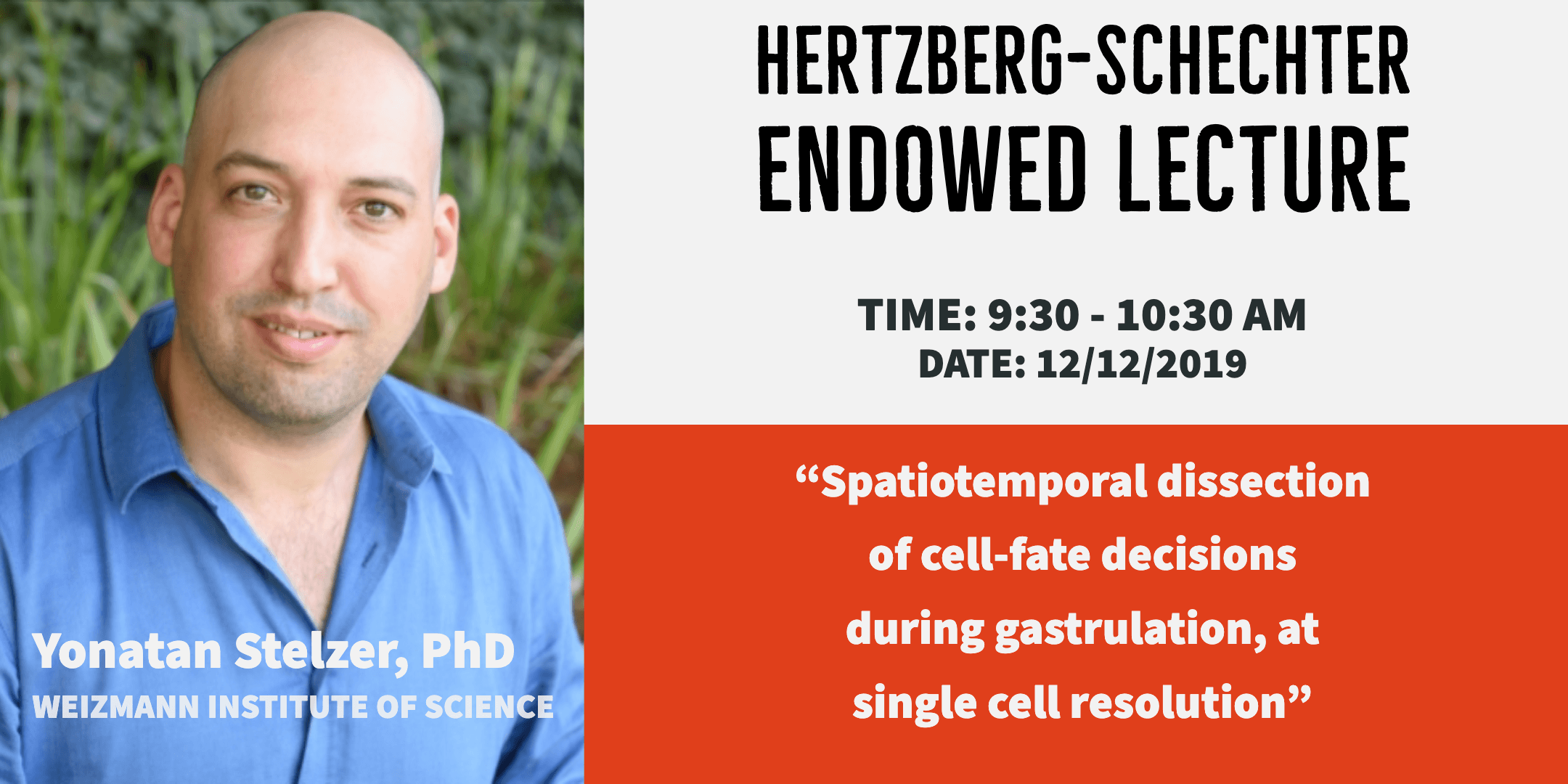Dec 12, 2019–Dec 12, 2019 from 9:30am–10:30am
Hertzberg-Schechter Endowed Lecture Speaker, Yonatan Stelzer, PhD Dec. 12, 2019

Hertzberg-Schechter Endowed Lecture
The Southern California Stem Cell Seminar Series for December “Spatiotemporal dissection of cell-fate decisions during gastrulation, at single cell resolution”
Seminar Speaker, Yonatan Stelzer, PhD, Department of Molecular Cell Biology; Weizmann Institute of Science
Hosted by Alon Goren, PhD, Assistant Professor in Medicine, Division of Genetics, UC San Diego Health Lab Website
December 12, 2019 at 9:30 AM
Stelzer Bio:
Yonatan Stelzer received his PhD from the Hebrew University of Jerusalem Israel. His PhD work focused on studying the roles of parental imprinting during early human embryogenesis and in disease conditions, using human embryonic and induced pluripotent stem cells. In 2014, Yonatan joined the laboratory of Prof. Rudolf Jaenisch at the Whitehead Institute of MIT USA, as a postdoctoral fellow. In his postdoctoral work, Yonatan pioneered a reporter system that allows monitoring real-time changes of DNA methylation in single cells, both in vitro and in vivo, while facilitating prospective isolation of cells based on their methylation signature.Stelzer Lab:
Epigenetic modifications provide cells and organisms with remarkable plasticity. Yet, disentangling the Gordian knot of epigenetic cause and effect still remains a formidable task. As one of the first epigenetic alterations to be identified, DNA methylation represents perhaps the most studied and mechanistically best-understood modification. Revolutionary technologies now offer unprecedented opportunities for understanding the function of DNA methylation in specifying, memorizing, and modulating functional embryonic programs. These powerful tools motivate further development of novel experimental systems to integrate single-cell monitoring with flexible engineering of markers, reporters, and perturbations, to precisely target key rare cell populations for in-depth analysis. Building on the recent developments in single-cell genomics and epigenomics and moving forward, by developing systems for dissection of embryonic epigenetic function in-vivo, represents a deep and fundamental challenge our group is determined to engage in the coming years.Date and Time
Dec 12, 2019–Dec 12, 2019
from 9:30am–10:30am
Location
Duane Roth Auditorium at Sanford Consortium for Regenerative Medicine
Event Registration
Registration for this event is required
by .
Visit the registration page for details.
Event Fee
Free, registration requested
Contact
Marci Murray • mjmurray@health.ucsd.edu • 858-534-8510
Audience
Faculty, Staff, Students, The General Public
Event Host
UC San Diego Stem Cell Program, Alon Goren, PhD